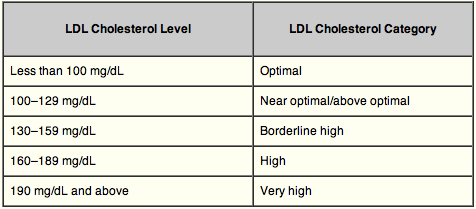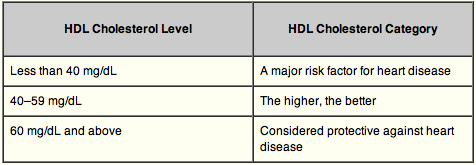High blood cholesterol is diagnosed by checking the cholesterol levels in your blood.

A cholesterol level test is a blood test that measures the levels of cholesterol in the blood that can help show whether you are at risk for coronary artery disease (CAD). It is also referred to as a lipoprotein panel, lipid panel or lipid profile.
Before the test, you’ll need to fast (not eat or drink anything but water) for 9 to 12 hours.
The lipoprotein panel will give your doctor information about your:
- Total cholesterol. Total cholesterol is a measure of the total amount of cholesterol in your blood, including low-density lipoprotein (LDL) cholesterol and high-density lipoprotein (HDL) cholesterol.
- LDL ("bad") cholesterol. This is the main source of cholesterol buildup and blockages in the arteries. A high LDL increases one's risk of developing a condition called atherosclerosis.
- HDL ("good") cholesterol. This type of cholesterol removes cholesterol from your blood, decreasing one's risk of developing atherosclerosis.
- Triglycerides. Triglycerides are a type of fat in your blood. Some studies suggest that a high level of triglycerides in the blood may raise the risk of coronary heart disease, especially in women.

If it’s not possible to have a lipoprotein panel, knowing your total cholesterol and HDL cholesterol can give you a general idea about your cholesterol levels.
Testing for total and HDL cholesterol does not require fasting. If your total cholesterol is 200 mg/dL or more, or if your HDL cholesterol is less than 40 mg/dL, your doctor will likely recommend that you have a lipoprotein panel. (Cholesterol is measured as milligrams (mg) of cholesterol per deciliter (dL) of blood.)
Cholesterol Level: Normal Ranges
NOTE: All values in this section are for adults only and do not apply to children.

Lipoprotein panel
The list below shows ranges for total cholesterol, LDL ("bad") cholesterol, and HDL ("good") cholesterol levels after 9 to 12 hours of fasting.
Triglycerides also can raise your risk for heart disease. If your triglyceride level is borderline high (150–199 mg/dL) or high (200 mg/dL or higher), you may need treatment.
Factors that can raise your triglyceride level include:
- Overweight and obesity
- Lack of physical activity
- Cigarette smoking
- Excessive alcohol use
- A very high carbohydrate diet
- Certain diseases and medicines
- Some genetic disorders
Your doctor or health care provider will discuss your results with you. He or she will advise you further if your results are outside the desirable range.
Source: National Heart, Lung & Blood Institute
Last updated : 10/26/2020